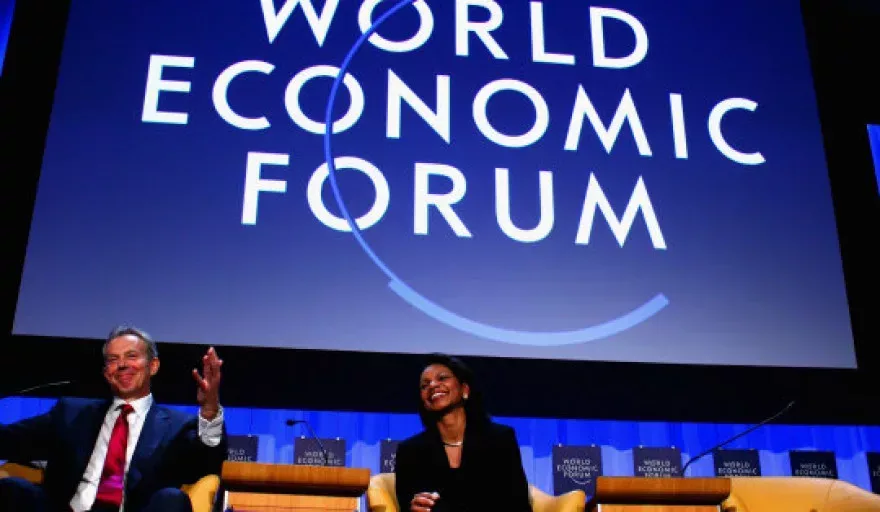The 25th World Economic Forum on Africa aims to focus on the continent’s efforts to enhance competitiveness, invest in human capital, strengthen risk resilience and harness opportunities arising from technology adoption in all sectors.
Over the past decade and a half, Africa has demonstrated a remarkable economic turnaround, growing two to three percentage points faster than global GDP.
With the world’s largest youth demographic, Africa’s working-age population is expected to double to one billion in the next 25 years, surpassing both China and India. The year 2015 is also significant for Africa, as it marks the end of global, regional and local efforts to meet the Millennium Development Goals aimed at eradicating poverty.
However, sustainable development and growth are required, and the onus is on leaders to address systemic structural changes that can boost investment, and create an environment in which business, and entrepreneurs, can thrive.
This is also necessary to diminish vulnerability to commodity price fluctuations, capital market volatility, mounting public debt, climate change and persistent development challenges.
According to Elsie Kanza, Head of Africa for World Economic Forum, “the purpose of Forum meetings, of course, is to look ahead; often further into the distance than many of us are comfortable with. Africa has made great strides politically, economically and socially since 1990 but great challenges are still mounting up, particularly in the area of jobs and skills”.
In March, I participated in the European Union Circular Economy conference in Brussels, as I spoke with leaders from around the world on the panel “Modernising Waste management: Closing the Loop in circular economy”, I marvelled at the difference between how countries in the developed and developing worlds define and understand sustainability.
Closing this gap in understanding will be critical to advancing development strategies that work and I look forward to taking part in the conversations at World Economic Forum this week in this respect.
For us, true sustainability is sustainable development. It means balancing economic growth, infrastructure development and creating small business opportunities as well as jobs to the poor, while lowering our emissions and overall impact on the environment.
It is possible to balance these priorities, but it will require an integrated approach that is both realistic and aspirational. However there is a great need to fast track our efforts to create jobs and drive economic growth, and this will be achieved by thinking out of the box.
One of the ways we can fast track this process is by creating circular economies. On a planet of finite resources, the circular economy is not optional, it is inevitable. Its implementation will provide world economies with unprecedented opportunities, through the creation of reverse logistics networks, new processes and new industries using the recovered resources.
For example, in the tyre industry, it means reusing and recycling existing materials and products. In other words, what used to be regarded as ‘waste’ can be turned into a resource and reintroduced into the economy.
By involving all stakeholders, government and the private sector, the REDISA tyre industry circular economy model is working: tyre manufacturers and importers are taking responsibility for their waste without losing sight of focusing on their core business, unemployed people are finding gainful employment, SMMEs are being developed and supported by the REDISA Plan, and the environmental disaster that waste tyres represent is being economically and effectively addressed.
While interest in developing circular economies internationally is growing, it is happening at a slow pace. If the circular economy approach is to become more widespread, we must look at all industries to see how, through innovation and cooperation, we can double our efforts.
For example, today the world has 1.8 billion middle-class consumers, and will be home to five billion within the next 20 years. There is already a shortage of commodities on earth; so where will this ballooning middle-class get their washing machines? The only source will be what we now think of as waste. So the sooner we start revisiting the way we look at ‘waste’, and the more concerned we become about commodity efficiency, the better.
To date, a number of public-private collaboration projects have already been identified but now is the time to act and significantly reduce the continent’s frightening unemployment figures. Through continued collaboration and work with partners in government and multilateral organisations, with business and trade unions, and with consumers and NGOs, we will be able to build more sustainable, efficient and long-term socio-economic solutions.
It is an exciting time for the development of Africa and the world. We face significant challenges, but we confront those challenges with confidence in what a circular economy will mean for our people: truly sustainable development.
By Hermann Erdmann, CEO of REDISA (Recycling and Economic Development Initiative of South Africa)






























